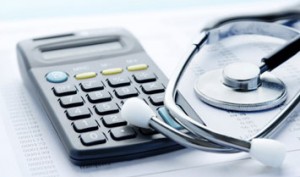Why you need to get your accounts right (and how you can get your accounts wrong)
 Your accounts are the heart monitor of your business; if there is no heartbeat (or no profit being made), the patient (or the business) could suffer and die. They represent the financial health of your business and you will use them to judge your business performance and to help you make key decisions like whether to invest in a marketing project or to buy new stock or new plant and machinery.
Your accounts are the heart monitor of your business; if there is no heartbeat (or no profit being made), the patient (or the business) could suffer and die. They represent the financial health of your business and you will use them to judge your business performance and to help you make key decisions like whether to invest in a marketing project or to buy new stock or new plant and machinery.
This is the first essential reason for why it is so vitally important to keep accurate and verifiable accounts. Without them, how will you know how well your business is performing and whether all your efforts in running the business are worthwhile? From good accounts alone you will know how much your business has spent, how much money it has coming in, and from that how much profit or loss it is making. These are the bedrock performance indicators of any business; the others, whether it be the number of contacts in your database or the number of hits to your website, are ultimately meaningless without any understanding of how much money your business is making or losing.
Also, other people and businesses will want to view your accounts to assess the value and strength of your business. This might be your bank considering an application you have made for an overdraft or commercial loan. It might be someone you have invited to invest in or buy your business. Or you might apply for a grant from the government or local council. All of these will require comfort and confidence in your business which your accounts can help provide.
Finally, and simply, maintaining the accounts of a business is a legal necessity. HMRC requires you to maintain detailed records of all your business transactions in order to calculate your income tax or corporation tax liabilities and to pay them when they become due. Similarly, if your business is VAT registered, you must monitor your VAT liabilities and pay them when they become due. HMRC requires you to maintain further detailed records of all your transactions that are subject to VAT.
Without your accounts, your business will effectively cease to function and you could find yourself in legal trouble. It is therefore a business imperative to get your accounts right and be mindful of the consequences if you get them wrong. Keeping good accounts will not guarantee that your business will succeed, but if you don’t keep good accounts and thereby lose control of your business finances, your business will almost certainly fail.
There are several ways to ensure that your accounts are and remain accurate. As this blog has previously explored, an accountant can be extremely beneficial in maintaining and optimising your business, while some basic organisational discipline can take the stress out of doing your accounts. Good accounting software can also help you manage your books, with many accounting software solutions being hosted online via ‘cloud computing’, which means that you can update your accounts wherever you have an internet connection. There is simply no longer the excuse for not maintaining your books.
Yet it is equally easy to get your accounts wrong. Sometimes the very tools that are there to help us can trip us up along the way.
Jonathan Scott of J N Scott Designs was one such person who could have got into trouble even though he was trying to do the right thing. Jonathan started his business in 2012 and to manage his books he opted for a well-known accounting software package, which he found overwhelming and confusing.
The accounting software package was too complicated for Jonathan’s needs which resulted in it not being configured correctly for his business, with the consequence that he had inadvertently been adding VAT to his invoices and his accounts when his business was not VAT registered. Luckily, Jonathan consulted with an accountant who spotted this error, resolved the problem and switched him to an online accounts package that was far easier to use.
If Jonathan hadn’t sought advice and had just relied on his existing accounts package alone, he could have found himself in trouble with HMRC for submitting accounts that showed VAT calculations when he was not registered for VAT. As Jonathan told me, “My previous accounts package was too complicated, offering me features that I didn’t need but yet not doing what I wanted it do; it was scary.”
Getting your accounts wrong will undermine your ability to run your business efficiently and successfully but it can also have consequences beyond this. It can land you in legal trouble, damage your professional reputation and leave you subject to financial penalties imposed by HMRC. As Jonathan’s story shows, you can get your accounts wrong even when you are trying to do the right thing. So, if in doubt, get the necessary professional advice and adopt the right bookkeeping system that suits both the needs of your business and your personal skills and preferences.